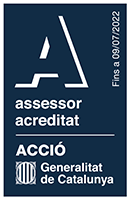When it comes to enrolling in a university or college, there are many formalities that you need to go through. One of these formalities is signing a license agreement with the university. A license agreement is a legal contract that outlines the terms and conditions of using the university`s intellectual property, facilities, and technology. In this article, we will discuss the essential aspects of license agreement university.
What is a License Agreement?
A license agreement is a legal contract between two parties that outlines the terms and conditions of using intellectual property, facilities, or technology. In the context of universities, a license agreement is a contract that outlines the terms and conditions that students, faculty, and staff must comply with when using the university`s resources.
Why Do You Need a License Agreement with a University?
There are different types of license agreements that you may need to sign with a university. For instance, if you are a student, you may need to sign a license agreement to use the university`s software, databases, or library resources. If you are a faculty member, you may need to sign a license agreement to use the university`s research facilities, equipment, or technology. A license agreement is necessary to protect the university`s intellectual property rights and ensure that its resources are used ethically and responsibly.
What Are The Essential Components of a License Agreement?
A license agreement is a legal document that outlines the terms and conditions of using the university`s resources. The essential components of a license agreement include:
1. Scope of the License: A license agreement should define the scope of the license, that is, what resources the licensee is allowed to use and for what purpose.
2. Term of the License: A license agreement should define the duration of the license, that is, how long the licensee is allowed to use the resources.
3. Intellectual Property Rights: A license agreement should outline the university`s intellectual property rights, which include copyrights, trademarks, patents, and trade secrets.
4. Restrictions: A license agreement should specify the restrictions on the licensee`s use of the resources, such as prohibiting the licensee from selling or redistributing the resources.
5. Termination Clause: A license agreement should include a termination clause that outlines the circumstances under which the agreement may be terminated.
6. Liability: A license agreement should outline the parties` liabilities, such as the licensee`s liability for misuse of the resources and the university`s liability for any damages incurred by the licensee.
Conclusion
In conclusion, a license agreement is a crucial legal document that outlines the terms and conditions of using a university`s resources. The university`s intellectual property, facilities, and technology are valuable assets that need to be protected, and a license agreement ensures that they are used ethically and responsibly. As a student, faculty member, or staff member, it is essential to read and understand the license agreement before signing it to ensure compliance with the terms and conditions.








